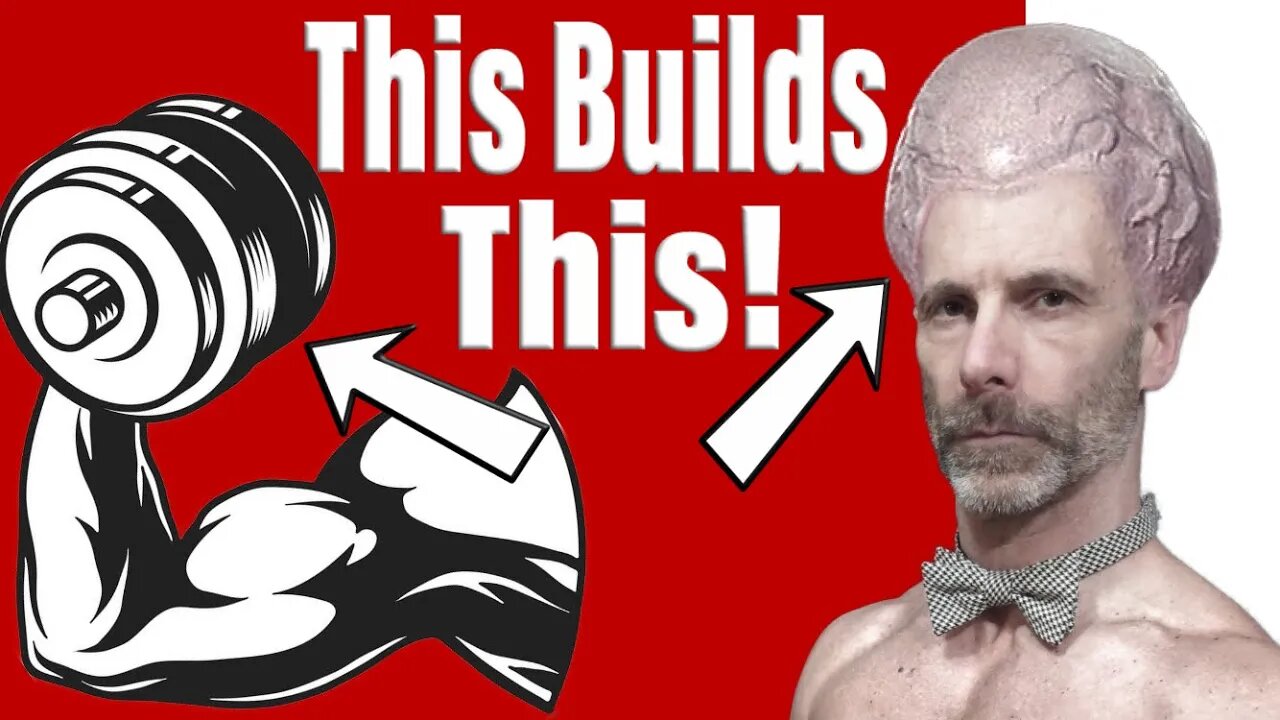Premium Only Content

How Resistance Exercise Improves Brain Function At Any Age
How Resistance Exercise Improves Brain Function At Any Age
Everything in our bodies is so interconnect, and when things start to go wrong, it can affect the whole body, not just where we first notice it.
We might notice our metabolism has started to slow down, and we have begun to gain some weight. Not realizing the slower metabolism has come from a lack of activity, which is causing muscle loss. And simultaneously, unknown to us, we are starting to lose some of our mental abilities, like memory or the ability to learn new tasks and general cognitive skills like problem-solving quickly.
Important things we need for day to day living.
Not only do we lose muscle size and strength with age, but we also lose brain size, and this is part of the reason we experience mental decline. Halting this decline and even reversing it is where resistance training comes in.
If you are interested in losing body fat and adding muscle, please email me at [email protected] for information on my personal training services.
Facebook; https://www.facebook.com/Fit-and-50-548844435514900/
My Amazon page link; https://www.amazon.com/shop/fitand50
My Affiliate link to Lebert for their Equalizer bars and more; http://www.easywebautomation.com/app/?af=1679568 and use the discount code LFI20 you will receive 20 dollars off your purchase
There have been a lot more studies done on the connection between endurance training and brain health, with endurance exercise showing improvements in blood flow to the brain, increasing the amount of oxygen and nutrients available to the cells. Causing increases in new blood vessels and encourages the brain to form new neutrons from stem cells in the hippocampus.
Resistance training is not as well studied, but it has shown an ability to increase both grey and white brain matter and reduce the growth of lesions on the brain.
These lesions are caused by disease and what they call normal changes from ageing. They damage the brain and cause loss of memory and poor judgement.
So how do we know the resistance training we are doing is effective for our brain health?
To answer this, I turned to a systematic review published in July of 2019. It did recognize that to prescribe an exercise dose for maximum brain gains more research needs to be done. But here is what it found in general.
For weekly training frequency, it found that 3 times a week was superior to twice a week. The majority of the studies were done training twice a week, and they still observed beneficial results. So if you can only train twice a week, your brain is still going to benefit.
For the recommendation on how many sets we should do per exercise, unfortunately, they had to go to a study on younger adults, where they compared doing 3 to 5 sets with only doing one set per exercise and found the 3 to 5 set group improved in doing the mental tests and could do them faster with greater accuracy than the one set group.
When it comes to the amount of weight lifted per set, they were all over the map. But I did my best to narrow it down. In some places, they would talk about the percentage of a ten rep max, and in another spot, they would use a percentage of a one-rep maximum.
The weight being used was somewhat moderate, with the heaviest weight being around a ten rep max, which would be about 75% of your one-rep maximum and the lightest load being closer to a 30 rep max, which would be 50% of your one-rep maximum.
This is a broad range, so you can see how more research is need. But they did reach some interesting conclusions so far. The people who trained in the upper end of this range is which is 60 to 75% of your one-rep maximum, made the greatest improvements in the speed of processing information and the lower percentage between 50 to 60 percent had more significant improvements in executive function, which is things like our ability to focus, handle emotions and follow directions.
I suspect there is a sweet spot in there, but without more information, I think it is safest to say for best results, we should vary the weight and rep ranges we use.
I looked at a couple of studies referenced in this paper to see what kind of exercises they were doing, and these were full-body workouts with leg press and seated row being used a lot. Other exercises included chest press, bicep curls, tricep extensions and hamstring curls.
If you are looking for a workout to not only protect your brain from ageing but build muscle too watch this playlist next, where I have 3, 4 and 5 day a week training splits. So you can keep working out while having fun.
https://eurapa.biomedcentral.com/articles/10.1186/s11556-019-0217-2#Fig1
-
 5:31
5:31
Fit and 50
2 years ago $0.07 earnedHow Much Food to Build Muscle and Lose Fat (Including What I Eat)
6042 -
 LIVE
LIVE
SpartakusLIVE
1 hour agoLIVE from VACATION || #1 Greek God of a Streamer
214 watching -
 1:09:36
1:09:36
Glenn Greenwald
1 day agoTrump Escalates War Efforts Towards Venezuela; New Book Details Secret Horrors of Factory Farms | SYSTEM UPDATE #531
104K32 -
 LIVE
LIVE
The Jimmy Dore Show
2 hours agoCIA Conducting COVERT OPS In Venezuela! Pam Bondi Pressures Facebook To Ban ICE-Monitoring Page!
8,912 watching -
 53:05
53:05
The Mel K Show
3 hours agoLive Q&A From Planet Chaos with Mel K 10-15-25
30.4K4 -
 LIVE
LIVE
Badlands Media
13 hours agoAltered State: Season 4, Episode 1
314 watching -
 DVR
DVR
RiftTV
5 hours agoRight Wing Infighting ESCALATES as INSANE Groupchat LEAKS | The Rift | Guest: Braeden Sorbo
29.1K4 -
 LIVE
LIVE
LFA TV
23 hours agoLIVE & BREAKING NEWS! | WEDNESDAY 10/15/25
568 watching -
 27:20
27:20
Robbi On The Record
3 days ago $9.64 earnedErased History, Tartaria and Satans Little Season | with JT Follows JC part one
44.2K26 -
 7:48:42
7:48:42
Dr Disrespect
10 hours ago🔴LIVE - DR DISRESPECT - BATTLEFIELD 6 - THE PERFECT WEAPON
135K11